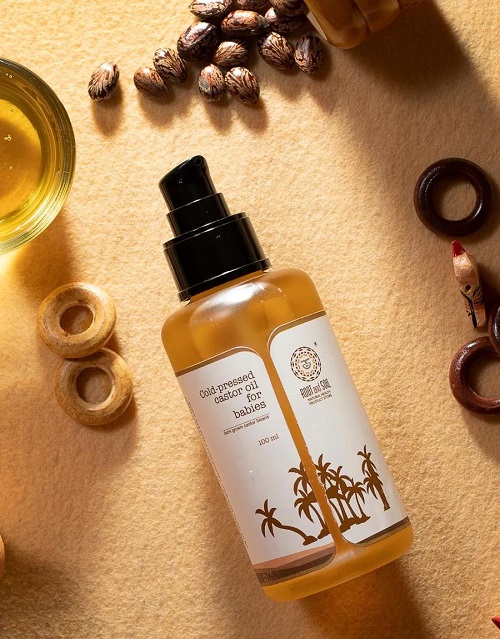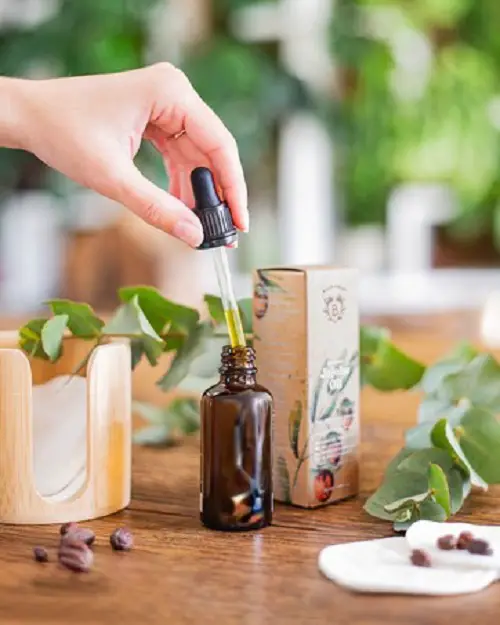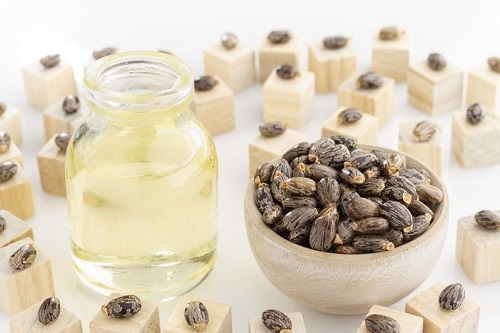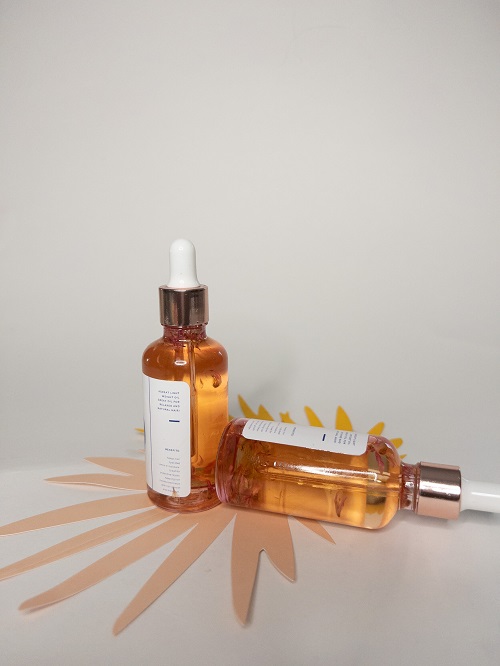Are All Castor Oils the Same? Uncover the differences in extraction methods, grades, and uses that determine which variety is right for you!
When you reach for a bottle of castor oil, whether it’s for soothing dry skin, nurturing your hair, or supporting digestive health, it’s important to ask—Are all castor oils the same? Let’s explore the answer and select the perfect type for your specific requirements!
Discover some Common Castor Oil Pack Detox Symptoms here
Are All Castor Oils the Same?
Castor oil, derived from the seeds of the Ricinus communis plant, is not a one-size-fits-all product. It comes in several distinct forms, each boasting its own set of characteristics and applications. Here are the key differences that will help you choose the right variety for you:
1. Processing Methods
- Cold-Pressed Castor Oil is derives through a method that literally involves pressing castor seeds to extract the oil, and all this is done without heat. This technique is particularly valued because it maintains the integrity of the oil’s beneficial properties, making the oil a premium choice for health and wellness uses.
- Expeller-Pressed Castor Oil shares a similar extraction process with cold-pressed, however, it can involve a bit more heat. This heat isn’t enough to degrade the oil significantly, but it may slightly alter its composition. Though still quite pure, some of the oil’s subtle characteristics might change, such as its nutrient profile or stability.
2. Purity and Additives
- Pure Castor Oil is exactly what it sounds like: castor oil in its unadulterated form, with no added chemicals or substances. It’s often the go-to type for medicinal and therapeutic uses because of its purity.
- Pharmaceutical Grade Castor Oil is held to the highest standards of purity. It’s rigorously tested to meet strict criteria, ensuring that it’s fit for medical applications. This is typically the most refined form of castor oil you can find.
- Castor Oil with Additives is often formulated for specific uses, such as cosmetic products. These might include additional components like fragrances or other oils to enhance the product’s application or sensory attributes.
3. Intended Use
- Cosmetic Grade Castor Oil is formulated for beauty applications. It’s included in products designed to improve the appearance and condition of hair and skin, often with a focus on moisturization.
- Food Grade Castor Oil has been certified as safe for consumption. This doesn’t just mean it can be ingested; it also implies the oil has been produced, processed, and packaged in a way that makes it fit for human consumption.
- Industrial Grade Castor Oil is manufactured for technical applications, such as the production of paints, varnishes, and lubricants. It’s not suitable for personal use due to its processing and potential inclusion of other industrial chemicals.
Learn about some Super Benefits of Castor Oil Packs here
What are the Different Types of Castor Oil?
While there are several types of castor oil besed on the key factors, here are the major varieties, exhibiting unique characteristics:
1. Organic Cold-Pressed Castor Oil
Organic cold-pressed castor oil is known for its pure, natural extraction process. Obtained from the seeds of the castor plant without the use of heat, this method preserves the vital nutrients of the oil.
Free from pesticides and synthetic fertilizers, it is a preferred choice for those seeking an all-natural product for health, skincare, and hair treatments. Its high concentration of ricinoleic acid lends it anti-inflammatory and antibacterial properties, which are beneficial in treating a variety of ailments.
2. Jamaican Black Castor Oil
Jamaican Black Castor Oil has a distinctive dark color and ash content, which is a result of roasting the castor beans before oil extraction. This type of castor oil is revered for promoting hair growth, strengthening hair, and restoring scalp health.
The roasting process increases the pH level, making the oil more alkaline, which may help to clarify the scalp and aid in the effectiveness of its healing properties. It’s particularly popular in the beauty community for its rich nutrients and moisturizing capabilities.
3. Hydrogenated Castor Oil
Hydrogenated castor oil, also known as castor wax, is a hard, brittle wax formed by the hydrogenation of pure castor oil. It has a high melting point and is insoluble in water, making it an ideal ingredient in cosmetics, varnishes, polishes, and certain formulations where a solid consistency is desired.
Its emollient properties are used in ointments and lotions, contributing to skin hydration and barrier formation.
4. Dehydrated Castor Oil
Dehydrated castor oil is produced by dehydrating castor oil under controlled conditions. This process results in an oil with a unique set of properties, including increased resistance to high temperatures and a stable viscosity, which is advantageous in industrial applications such as paints, coatings, and inks.
The dehydration process makes this oil a drying oil, which means it can polymerize into a solid form, providing a protective, glossy coating for various materials.
Learn Everything about Castor and Olive Oil here
Choosing Your Perfect Castor Oil
Amidst a range of castor oil types, picking one could seem daunting. Here are a quick tips that would help you find your fit:
- Determine Your Use: First and foremost, decide what you’re using the castor oil for. Is it for hair and skin care, health purposes, or industrial use? Different types suits different applications.
- Check for Purity: For personal care and health, choose a high-quality, pure, cold-pressed castor oil. This ensures that the oil retains its vitamins, minerals, and beneficial properties without the addition of unwanted chemicals.
- Go Organic: If you’re using castor oil for health reasons, opt for an organic option. This means the castor plants did not involve any pesticides or synthetic fertilizers, which can be better for your body and the environment.
- Review the Processing Method: Understanding the processing methods, like cold-pressed or expeller-pressed, can give you insight into the oil’s nutrient profile. Cold-pressed is better for maintaining the integrity of the oil.
- Understand Label Terms: Familiarize yourself with terms like “expeller-pressed,” “cold-pressed,” “organic,” and “unrefined.” These terms can help you understand the quality and processing of the castor oil you’re considering.
- Read Reviews and Recommendations: Look at reviews, especially from users who have similar needs. High-rated products used for similar purposes as yours are usually a good bet.
- Patch Test for Allergies: If you’re using castor oil for the first time, especially on the skin, do a patch test to ensure you don’t have an allergic reaction. If you’re considering castor oil for therapeutic purposes, talk to a healthcare provider to ensure it’s appropriate for your situation.
Discover 5 Effective Castor Oil Packs for Ovarian Cysts here
Conclusion
In conclusion, castor oil is a versatile and beneficial product that comes in various forms to suit a wide range of applications. Whether you’re looking for a remedy for skin and hair care, a natural laxative, or an industrial lubricant, there’s a type of castor oil that can meet your needs. Remember to conduct a patch test for any new topical use and consult with a healthcare professional when using castor oil for therapeutic purposes.
Discover some Common Side Effects of Castor Oilhere
FAQs
1. Is Castor Oil And Mineral Oil The Same?
No, castor oil and mineral oil are not the same. The castor bean plant produces castor oil, a natural vegetable oil known for its numerous uses in cosmetics, skincare, and health. In contrast, mineral oil, which serves primarily as a lubricant in industrial applications, is a colorless and odorless petroleum-derived oil.
2. Is Black Castor Oil The Same As Castor Oil?
Black castor oil and regular castor oil differ. Black castor oil, typically Jamaican black castor oil, undergoes a roasting process with castor beans before extraction, which gives it a darker color and a distinctive smoky scent. Regular castor oil, like cold-pressed castor oil, undergoes a different process without roasting, resulting in a lighter color and milder scent.
3. Do Castor Oil Capsules Work The Same As The Liquid?
The same primary ingredient is present in both castor oil capsules and liquid castor oil, but they function differently. People often use liquid castor oil topically for skin and hair care or as a laxative.
On the other hand, individuals typically take capsules orally as a dietary supplement or for digestive health. The intended use can affect the effectiveness, and it may vary.
4. Is Castor Oil And Cod Liver Oil The Same?
No, castor oil and cod liver oil are not the same. The castor bean plant produces castor oil, which people use for various topical and internal purposes.
In contrast, cod liver oil comes from the liver of codfish and people primarily take it as a dietary supplement for its abundant omega-3 fatty acids and vitamins A and D.
5. Is There A Difference In Castor Oils?
Yes, there are variations in castor oils. Different types of castor oil, such as cold-pressed, Jamaican black, hydrogenated, and pale-pressed, have unique properties, colors, and applications. It’s essential to understand the differences among these varieties to choose the one that suits your specific needs.




